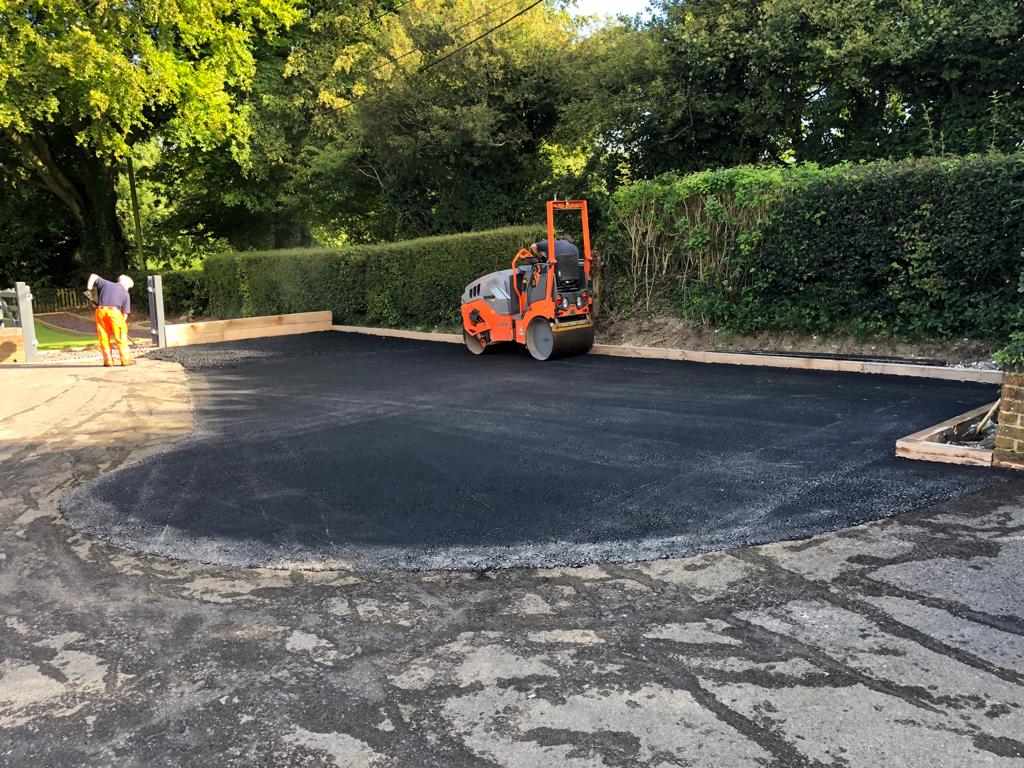In regions like North Lakes, QLD, where the weather can swing from scorching heat to heavy rains, maintaining the integrity of asphalt driveways is crucial. One common issue that homeowners face is the development of cracks in their driveways due to extreme temperatures. Cracks not only affect the appearance of your driveway but can also lead to costly repairs if left unaddressed. At North Lakes Surfacing Solutions, we specialise in high-quality asphalt installations and repairs, and we’re here to share some expert tips on how to prevent cracking in your asphalt driveway under extreme temperature conditions.
Understanding the Impact of Extreme Temperatures on Asphalt
Asphalt is a durable material, but it’s also susceptible to the effects of fluctuating temperatures. In the heat, asphalt can expand, while in cooler conditions, it contracts. This constant cycle of expansion and contraction can lead to surface cracks, especially if the driveway isn’t properly installed or maintained. The following strategies can help minimise the risk of cracking and extend the lifespan of your asphalt driveway.
1. Ensure Proper Installation
The foundation of a durable asphalt driveway starts with professional installation. Poorly laid asphalt with an uneven or insufficient base is more prone to cracking, especially in extreme weather. At North Lakes Surfacing Solutions, we take the time to ensure your driveway has a solid foundation and that the asphalt is applied in optimal conditions, reducing the likelihood of future issues.
2. Regular Sealing and Maintenance
Applying a sealant is a crucial step in protecting your asphalt driveway from environmental stress. Sealcoating acts as a barrier against UV rays, water infiltration, and other elements that can degrade the surface. In hot climates like North Lakes, sealing your driveway every 2-3 years can help maintain its flexibility and prevent cracks from forming.
3. Temperature Management During Installation
Asphalt should be installed during favourable weather conditions. Extreme heat can cause the material to become overly soft, leading to premature wear, while very cold weather can make the asphalt brittle and prone to cracking. By scheduling your installation during moderate temperatures, you can ensure the best outcome for your driveway.
4. Timely Repairs of Small Cracks
Even with the best prevention methods, small cracks can occasionally appear. It’s essential to address these early before they worsen. Filling minor cracks with high-quality asphalt crack fillers and repairing damaged sections will prevent further deterioration. Regular inspections can help catch issues before they become major problems.
5. Proper Drainage Management
Standing water is a major contributor to asphalt deterioration. Ensure your driveway has proper drainage to prevent water from pooling, which can seep into small cracks and weaken the structure, especially during extreme temperatures. Good drainage also prevents soil erosion beneath the driveway, which can cause the surface to shift and crack.
Conclusion
Preventing cracks in your asphalt driveway under extreme temperatures is all about proactive maintenance and expert installation. From ensuring a solid base to applying regular sealant, each step plays a vital role in keeping your driveway in top condition. At North Lakes Surfacing Solutions, we understand the challenges that Queensland’s climate can pose and are committed to providing durable and aesthetically pleasing asphalt surfaces that stand the test of time.
If you’re concerned about the condition of your driveway or need expert advice on asphalt care, reach out to North Lakes Surfacing Solutions today. Let us help you protect your investment and keep your driveway looking its best, no matter the weather conditions.
Call us on: 07 3113 9873
Click here to find out more about North Lakes Surfacing Solutions
Click here to complete our contact form and see how we can help with your surfacing needs.

